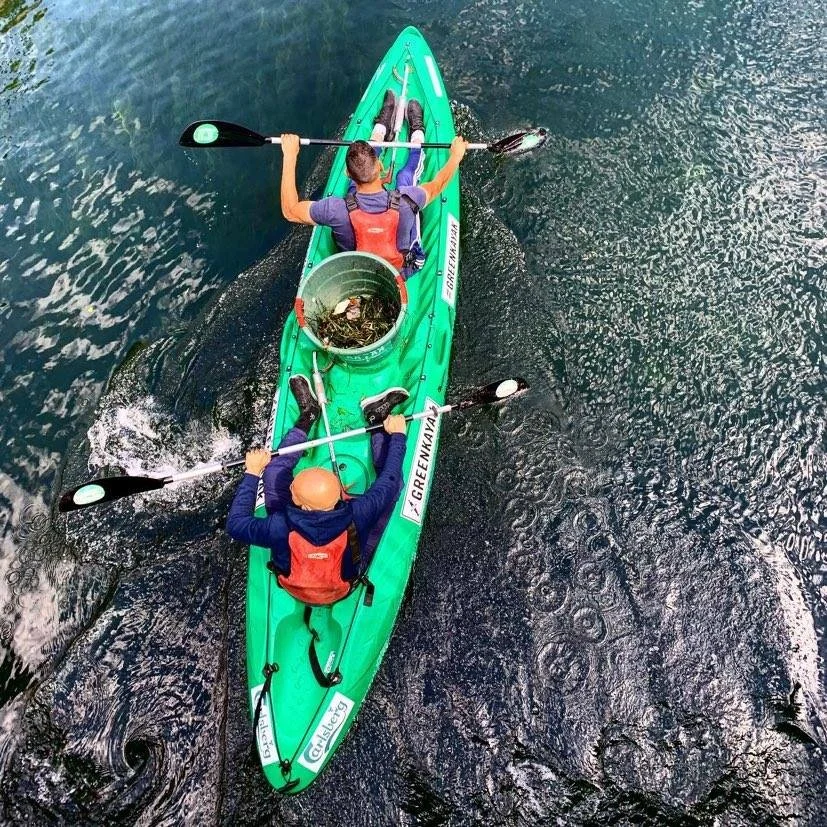The Green Claims Directive: What’s Next for Sustainable Communication?
Meaningful travel is built on transparency and trust, and the way we communicate our impact matters just as much as the work itself. While we encourage our members and Impact Partners to tell the story of the great work they are doing, we urge them to share progress authentically, avoid exaggeration, and back up sustainability claims with substance.
Misleading or vague claims can undermine not only individual brands but also the credibility of our entire industry. As new regulations emerge to combat greenwashing, particularly in Europe, we wanted to offer guidance. So we turned to Anne de Jong at the Good Tourism Institute, who’s been closely following the proposed Green Claims Directive. In the blog below, Anne breaks down what the directive means for travel companies, what types of claims will no longer fly, and how to stay ahead of the curve with honest, effective communication.
Future of Communicating Sustainability in Travel
As more travellers actively look for sustainable tourism options, an increasing number of travel businesses are highlighting their sustainability efforts. However, with sustainability being a buzzword, it’s getting harder for travellers to know which businesses are genuinely committed to sustainability, and which ones are simply using it as a marketing tool.
Greenwashing has long been a challenge in the industry, but the rise of sustainable marketing has made the issue more urgent. This became painfully clear when a 2020 report by the European Commission revealed that 53% of the environmental claims they examined were misleading, unfounded or vague.
These figures are shocking, and the real extent of the problem is likely much greater. To address this and to reduce greenwashing, the EU planned the Green Claims Directive: a new regulation that would require businesses to prove their sustainability claims.
“The goal of the Green Claims Directive is the reassurance that when something is sold as green, it is actually green.” - Frans Timmermans
Where Do We Stand Now?
Although there are talks that the Green Claims Directive may be cancelled, that doesn’t mean misleading sustainability claims are suddenly acceptable. Quite the opposite! Other rules are already in place.
The Empowering Consumer Directive, which has been passed and will come into effect on March 27, 2026, makes it clear that businesses cannot make sustainability claims unless they’re verified by a third party. So while the Green Claims Directive focused on how claims should be verified, this wider law focuses on whether you can make those claims at all.
In other words, unsubstantiated general claims like carbon-neutral tours or eco-friendly trips, without proof, will still be banned. That’s good news for businesses that really do walk the talk.
Why Does this Matter for Travel Businesses?
Visitors gathering together for a tour at Dundreggan Rewilding Centre, a rewilding initiative that helps restore Scotland’s Caledonian forest while providing immersive experiences in nature, conservation, and Gaelic heritage
These regulations are designed to determine how travel companies can communicate about their sustainability efforts. The main objective is to protect consumers (travellers) from misleading claims and greenwashing.
The idea is that with this regulation, travellers have the reassurance that when something is sold as green, it is actually green. Right now, this is often not the case.
If you look into the current marketing practices of travel businesses, you’ll come across statements such as “carbon neutral tours”, “positive impact trips,” and “environmentally-friendly travel experiences.” Such claims, when unsupported by evidence or justification, pave the way for greenwashing.
The more misleading claims are made (and there are a lot!), the higher the need for such regulation. Because without requirements to back up these claims, anyone can label themselves as sustainable, which really undermines the credibility of the entire travel industry.
Misleading Claims
The EU has identified five key categories of misleading claims that they aim to ban:
False Claims - Claims that are simply not true
Deceiving Claims - Misleading through overselling or giving the wrong impression
Irrelevant Claims - Highlighting sustainability aspects that are unrelated
Vague Comparison Claims - Comparisons without context
Future Claims – Promises about future actions without verifiable goals
Understanding the Green Claims Directive
Want to learn more about what makes a claim misleading and how to communicate sustainability responsibly? Even if the Green Claims Directive itself doesn’t move forward, the same principles and legal requirements still apply.
Download Good Tourism Institute’s free eBook “Understanding the Green Claims Directive” to get clear guidance on what you can say, what you can’t, and how to back up your claims with real evidence.
Does it Apply to the American Market?
Two people collect trash along a river with GreenKayak, an environmental NGO that engages people in the fight for cleaner oceans across Europe.
A frequent question we get is, “Do these regulations also apply to me if I’m based outside the EU, but for example in the US?” The short answer: Yes!
These regulations apply to you if:
You sell travel services to EU travellers, or
You work together with EU-based travel businesses that market or resell your products
Keep in mind that if your content is used in promotions targeting EU customers, your sustainability claims must meet these new standards. If you’re selling to or partnering with businesses based in the EU, understanding and complying with this directive is essential.
Even if it doesn’t legally apply to you, it’s still a good idea to align with the regulations. If your business is genuinely sustainable, backing up your claims with transparency, evidence, and context will strengthen your business’s credibility and consumer trust.
Prepare for the Future
The upcoming regulations are complex and difficult to understand, raising concerns among travel businesses worldwide. And we get it. These regulations can seem overwhelming and complicated.
That’s why we’ve broken things down in our online masterclass “Preparing for the Green Claims Directive”, where we turn this complex directive issue into an easy-to-follow framework. Our four clear steps help you communicate sustainability honestly and effectively, no matter what the future holds for the Directive.
Don’t wait until misleading claims damage your credibility. Get ahead of the curve and show that when you say you’re green, you really mean it.
About the Author
Anne de Jong is the founder of the Good Tourism Institute, a sustainable tourism and marketing consultancy that teaches travel businesses to use their sustainable practices and turn them into best-selling travel experiences. They transform travel businesses from sustainable today, to successful tomorrow – through implementing better tourism practices and communicating sustainability in an effective and appealing way.



